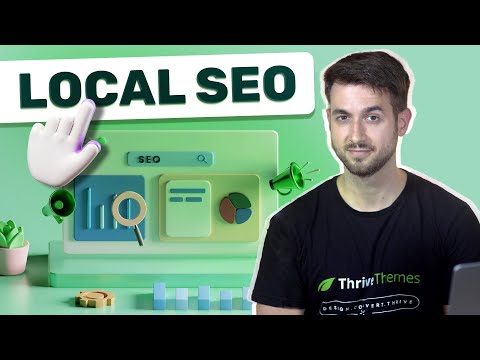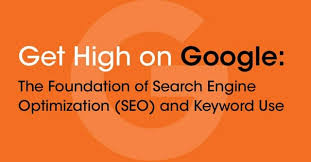The Power of SEO and Marketing in Driving Online Success
In today’s digital age, having a strong online presence is crucial for businesses looking to reach their target audience and drive growth. Search Engine Optimization (SEO) and marketing play a pivotal role in helping businesses achieve online success.
SEO: Enhancing Visibility and Ranking
SEO is the practice of optimizing your website to improve its visibility on search engine results pages. By incorporating relevant keywords, creating high-quality content, and optimizing website structure, businesses can increase their chances of ranking higher on search engines like Google.
Effective SEO not only helps drive organic traffic to your website but also enhances user experience by making it easier for visitors to find the information they need. This leads to increased engagement, lower bounce rates, and ultimately, more conversions.
Marketing: Connecting with Your Audience
Marketing complements SEO by focusing on promoting your brand and connecting with your target audience through various channels such as social media, email campaigns, and online advertising. By understanding your audience’s needs and preferences, you can tailor your marketing strategies to effectively engage with them.
Through targeted marketing efforts, businesses can build brand awareness, drive traffic to their website, generate leads, and ultimately increase sales. Marketing allows you to showcase your products or services in a compelling way that resonates with your audience and encourages them to take action.
The Synergy of SEO and Marketing
When combined strategically, SEO and marketing can create a powerful synergy that maximizes online visibility and drives business growth. By optimizing your website for search engines while implementing targeted marketing campaigns, you can attract quality traffic to your site, engage with potential customers effectively, and convert leads into loyal customers.
Continuous monitoring and analysis of SEO performance metrics and marketing analytics are essential for refining strategies and ensuring ongoing success. By staying informed about industry trends and adapting to changes in algorithms or consumer behavior, businesses can stay ahead of the competition in the digital landscape.
In Conclusion
SEO and marketing are indispensable tools for businesses looking to thrive in the competitive online environment. By investing in these strategies and leveraging their combined power, businesses can enhance their online presence, reach a wider audience, drive conversions, and ultimately achieve sustainable growth.
Top 8 Frequently Asked Questions About SEO and Marketing
- What is SEO and why is it important for my website?
- How can I improve my website’s search engine ranking?
- What are the key factors that influence SEO performance?
- How long does it take to see results from SEO efforts?
- What is the difference between organic and paid search results?
- How can social media marketing benefit my business?
- What are some effective strategies for email marketing campaigns?
- How do I measure the success of my SEO and marketing efforts?
What is SEO and why is it important for my website?
Search Engine Optimization (SEO) is a set of strategies and techniques aimed at improving a website’s visibility and ranking on search engine results pages. SEO involves optimizing various elements of a website, such as content, keywords, meta tags, and backlinks, to make it more relevant and authoritative in the eyes of search engines like Google. Implementing effective SEO practices is crucial for your website because it helps increase organic traffic, enhance user experience, and ultimately drive more qualified leads and conversions. By improving your website’s SEO, you can ensure that your target audience can easily find your site when searching for relevant information or products/services online, leading to better brand exposure and increased online success.
How can I improve my website’s search engine ranking?
To improve your website’s search engine ranking, it is essential to focus on key aspects of SEO such as optimizing your website’s content with relevant keywords, enhancing user experience through easy navigation and mobile responsiveness, earning quality backlinks from reputable websites, and regularly updating your site with fresh and engaging content. Additionally, implementing a solid marketing strategy that includes social media promotion, email campaigns, and online advertising can help drive traffic to your site and increase its visibility. By consistently monitoring your website’s performance metrics and staying up-to-date with SEO best practices, you can effectively improve your search engine ranking and attract more organic traffic to your website.
What are the key factors that influence SEO performance?
When considering the key factors that influence SEO performance, several critical elements come into play. Firstly, the relevance and quality of content on a website significantly impact its search engine ranking. Utilizing relevant keywords, creating high-quality content, and ensuring a user-friendly website structure are essential for SEO success. Additionally, factors such as website speed, mobile-friendliness, backlinks from reputable sites, and overall site authority also play crucial roles in determining SEO performance. By focusing on these key factors and continuously optimizing strategies based on analytics and industry trends, businesses can enhance their SEO performance and improve their online visibility.
How long does it take to see results from SEO efforts?
One frequently asked question in the realm of SEO and marketing is, “How long does it take to see results from SEO efforts?” The timeline for seeing tangible results from SEO strategies can vary depending on various factors such as the competitiveness of the industry, the current state of the website, the effectiveness of the implemented SEO tactics, and search engine algorithms. Generally, businesses may start noticing improvements in their search engine rankings and organic traffic within a few months of consistent and strategic SEO efforts. However, it’s important to understand that SEO is a long-term investment that requires patience and ongoing optimization to achieve sustainable results and maintain a strong online presence.
What is the difference between organic and paid search results?
In the realm of SEO and marketing, a common query revolves around distinguishing between organic and paid search results. Organic search results are listings that appear on search engine results pages naturally, based on their relevance to the user’s search query and the website’s optimization efforts. On the other hand, paid search results are advertisements that appear at the top or bottom of search engine results pages and are labeled as such. While organic results rely on SEO strategies to rank higher over time, paid results involve advertisers bidding on keywords to have their ads displayed when those keywords are searched. Understanding the disparity between organic and paid search results is crucial for businesses aiming to optimize their online visibility effectively and drive targeted traffic to their websites.
How can social media marketing benefit my business?
Social media marketing can greatly benefit your business by providing a powerful platform to connect with your target audience, build brand awareness, and drive engagement. Through strategic social media campaigns, businesses can reach a wider audience, generate leads, and increase website traffic. By creating compelling content that resonates with users and encourages sharing, social media marketing can enhance brand visibility and credibility. Additionally, social media platforms offer valuable insights into consumer behavior and preferences, allowing businesses to tailor their marketing strategies for maximum impact. Overall, leveraging social media marketing effectively can lead to increased brand loyalty, customer retention, and ultimately, improved business growth.
What are some effective strategies for email marketing campaigns?
When it comes to email marketing campaigns, there are several effective strategies that can help businesses maximize their impact and engagement with subscribers. Personalization is key, as tailoring email content to individual preferences and behaviors can significantly increase open rates and click-through rates. Segmenting your email list based on demographics, purchase history, or engagement levels allows for targeted messaging that resonates with specific audience segments. Additionally, creating compelling subject lines and clear calls-to-action can entice recipients to open emails and take desired actions, such as making a purchase or signing up for an event. Regularly testing and analyzing campaign performance metrics is essential for optimizing strategies and ensuring continuous improvement in email marketing effectiveness.
How do I measure the success of my SEO and marketing efforts?
Measuring the success of your SEO and marketing efforts is essential to understanding the effectiveness of your strategies and optimizing future campaigns. Key performance indicators (KPIs) such as website traffic, conversion rates, keyword rankings, bounce rates, and social media engagement can provide valuable insights into the impact of your efforts. Analyzing these metrics regularly allows you to track progress, identify areas for improvement, and make data-driven decisions to enhance your overall online presence and drive business growth. By setting specific goals and measuring performance against them, you can gauge the success of your SEO and marketing initiatives and adjust strategies as needed to achieve optimal results.




